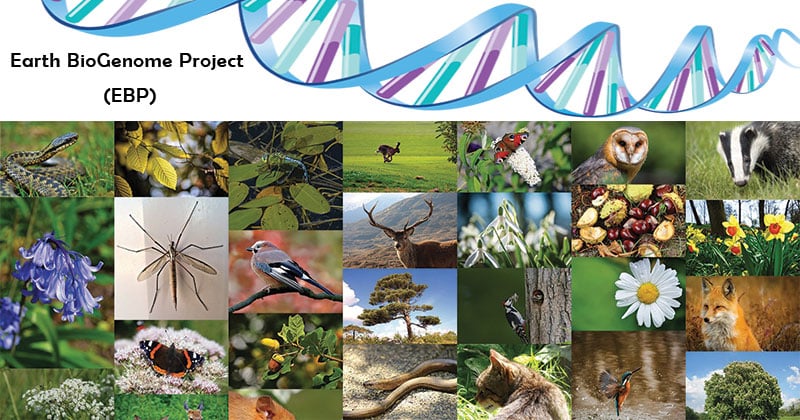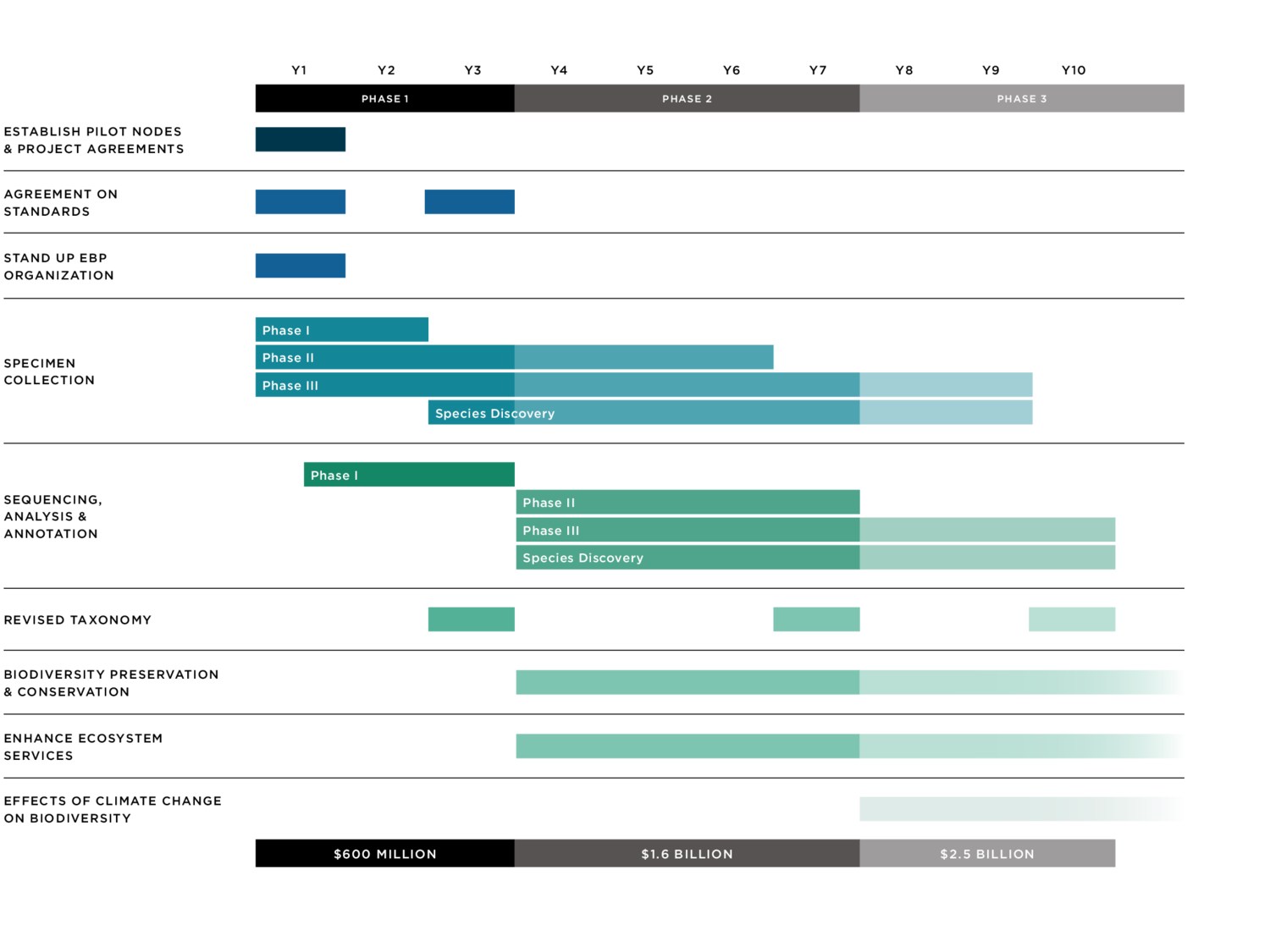- The Earth BioGenome Project (EBP) is a global initiative to sequence the genetic code of the entire planet’s eukaryotes; some 1.5 million known species including all known plants, animals, protozoa and fungi.
- It aims to sequence and catalog the genomes of all such eukaryotic species over a period of ten years and was officially launched on November 1, 2018.
- The last project of a similar scale and importance was the 13-year endeavor to map the human genetic code, the Human Genome Project, which was completed in 2003.
- The $4.7 billion EBP aims to build a resource for studying a wide range of plant and animal species.
- The product of this decade-long study would be a massive resource for scientists, offering many potential insights, including how environmental change is affecting living systems at the genetic level.

Interesting Science Videos
Anticipated Benefits of the Earth BioGenome Project (EBP)
The initiative would produce an open DNA database of biological information that provides a platform for scientific research and supports environmental and conservation initiatives.
- Sequencing all known eukaryotic genomes will revolutionize the understanding of biology and evolution.
- It is expected to bolster efforts to conserve, help protect and restore biodiversity.
- Provide new resources for researchers in the fields of agriculture and medicine.
- Create new benefits for society and human welfare.
- The project is also a means to open up new avenues for treating infections, drugs for anti-ageing, or even develop new approaches to addressing food shortage and for the development of innovative biomaterials.
Goals of the Earth BioGenome Project (EBP)
The EBP has identified a broad set of scientific goals and projected economic, social, and environmental returns to society and human welfare. The goals of the EBP are as follows.
1. Revise and reinvigorate our understanding of biology, ecosystems, and evolution:
- Better understand evolutionary relationships among all known organisms.
- Fully elucidate the timing, origin, distribution, and density of species on Earth.
- Generate new knowledge ecosystem composition and functions.
- Discover new species (80–90% of eukaryote biodiversity).
- Elucidate genome evolution (gene to chromosome scale).
- Discover fundamental laws that describe and drive evolutionary processes.
2. Enable the conservation, protection, and regeneration of biodiversity:
- Determine the role of climate change on biodiversity.
- Clarify how human activities (pollution, habitat encroachment, etc.) and invasive species affect biodiversity.
- Develop evidence-based conservation plans for rare and endangered species.
- Create genomic resources to restore damaged or depleted ecosystems.
3. Maximize returns to society and human welfare (ecosystem services and biological assets):
- Discover new medicinal resources for human health.
- Enhance control of pandemics.
- Identify new genetic variation for improving agriculture (e.g., yields, disease resistance)
- Discover novel biomaterials, new energy sources, and biochemical.
- Improve environmental quality (soil, air, and water)

Figure: Road Map of the Earth BioGenome Project (EBP), Source: https://www.earthbiogenome.org/
Collaborations of the Earth BioGenome Project (EBP)
The project will draw manpower from across the globe.
- Seventeen institutions from across the globe, including the USA, United Kingdom, China, Germany, Denmark and Brazil, have signed a Memorandum of Understanding that commits each institution to work together towards the common goals of the project.
- In addition, 15 scientific communities and national and regional projects are also affiliated with the EBP.
- The largest pledge is made by the Wellcome Sanger Institute that it will lead the UK contribution to the EBP by sequencing all 66,000 eukaryotic species across the British Isles.
- A team of Chinese researchers from The Beijing Genomics Institute (BGI) in Shenzhen, China, aims to sequence 10,000 plant species.
- The Global Ant Genomes Alliance intends to contribute 200 ant genomes to the vast effort.
- Similarly, the USDA is launching an effort to sequence 100 genomes of agriculturally important insects and mites.
- The EBP activities are currently funded by the participating organizations as well as private foundations, governmental organizations and crowd-funding sources.
References
- https://www.firstpost.com/tech/science/dna-of-all-life-on-earth-to-be-sequenced-in-massive-genome-project-report-5491001.html
- https://www.ucdavis.edu/news/international-consortium-officially-launches-earth-biogenome-project-london/
- https://www.sciencedaily.com/releases/2018/04/180423155054.htm
- https://www.futuretimeline.net/blog/2018/11/4.htm
- https://www.earthbiogenome.org
- Harris A. Lewin, Gene E. Robinson, W. John Kress, WilliamJ. Baker, Jonathan Coddington, Keith A. Crandall, Richard Durbin, Scott V. Edwards, Félix Forest, M. Thomas P. Gilbert, Melissa M. Goldstein, Igor V. Grigoriev, Kevin J. Hackett, David Haussler, Erich D. Jarvis, Warren E. Johnson, Aristides Patrinos, Stephen Richards, Juan Carlos Castilla-Rubio, Marie-Anne van Sluys, Pamela S. Soltis, Xun Xu, Huanming Yang, Guojie Zhang Proceedings of the National Academy of Sciences Apr 2018, 115 (17) 4325-4333; DOI:10.1073/pnas.1720115115.
